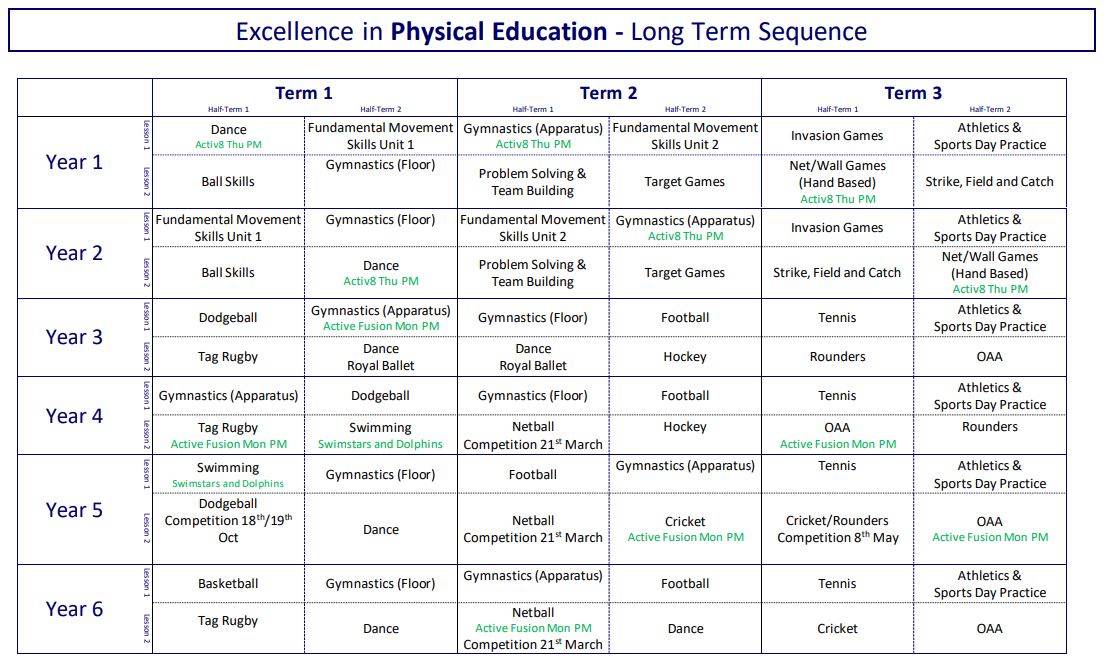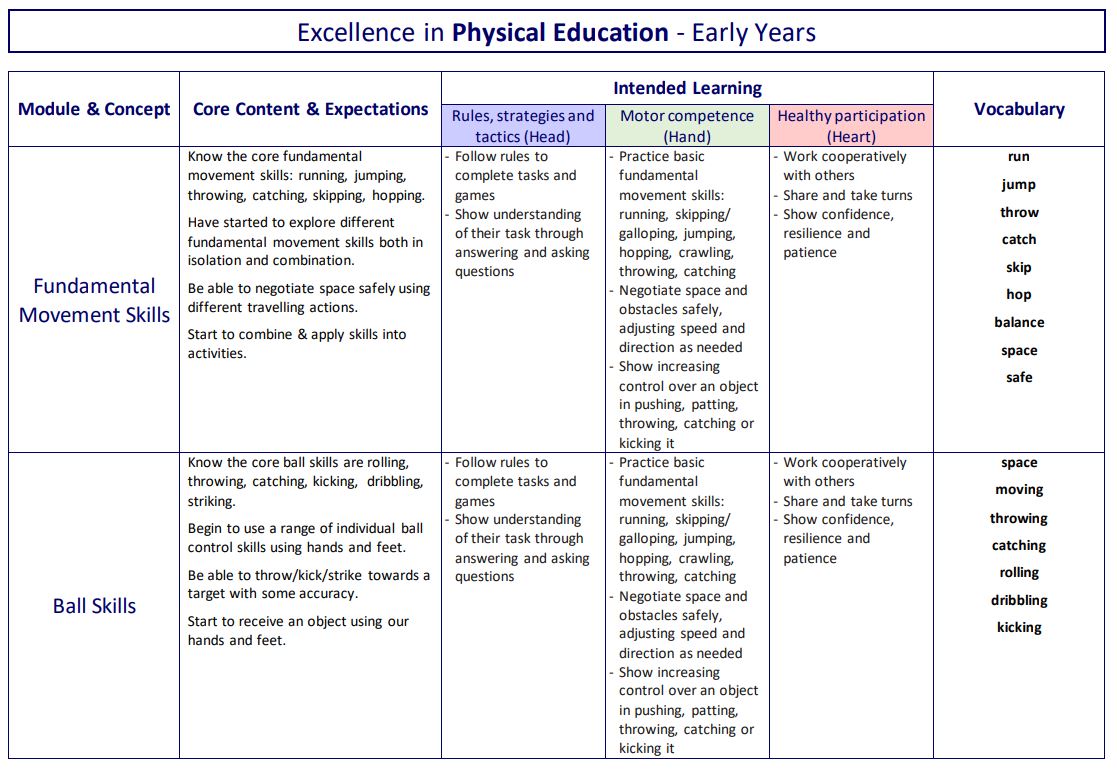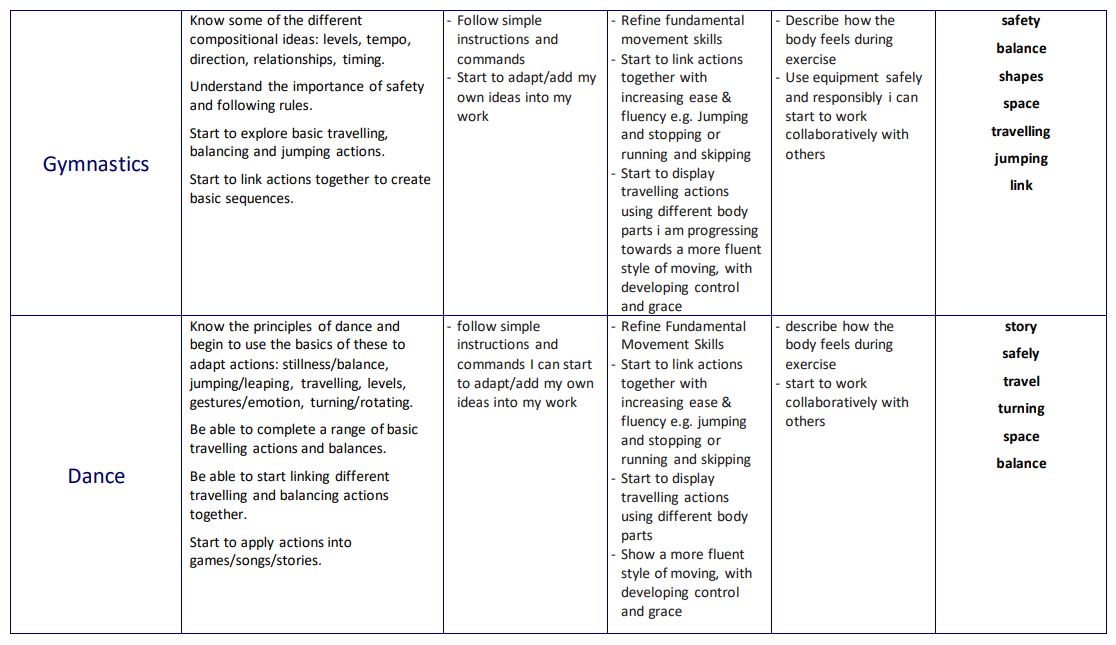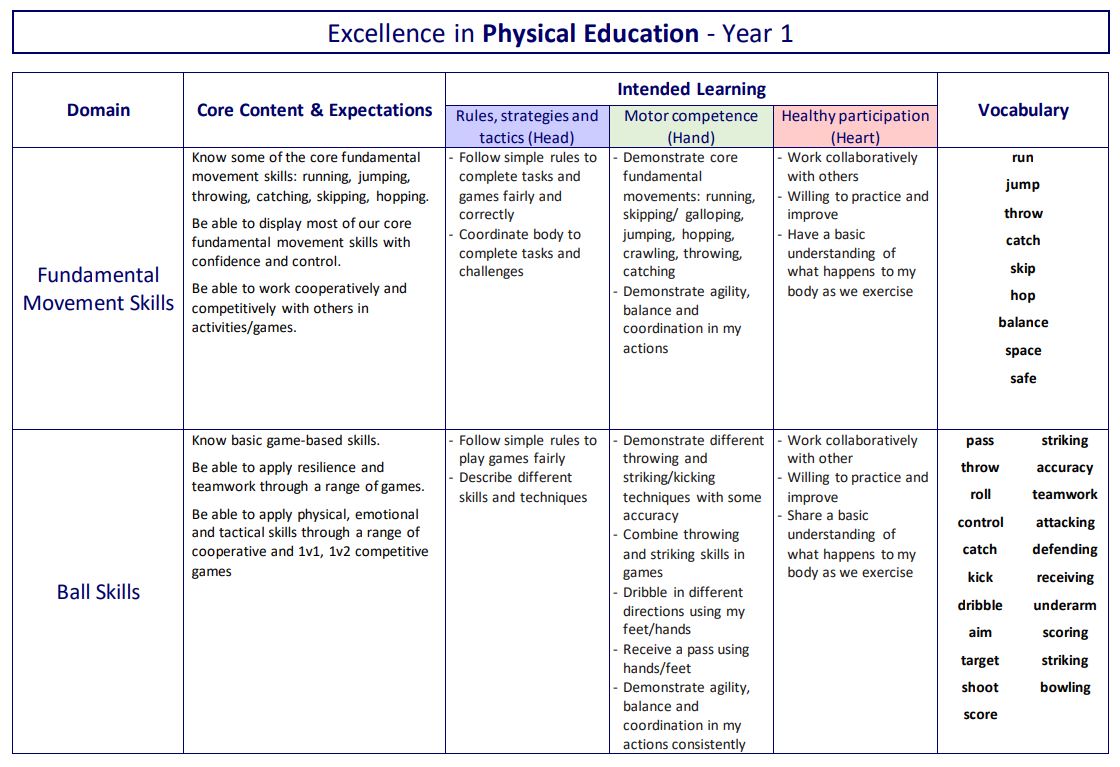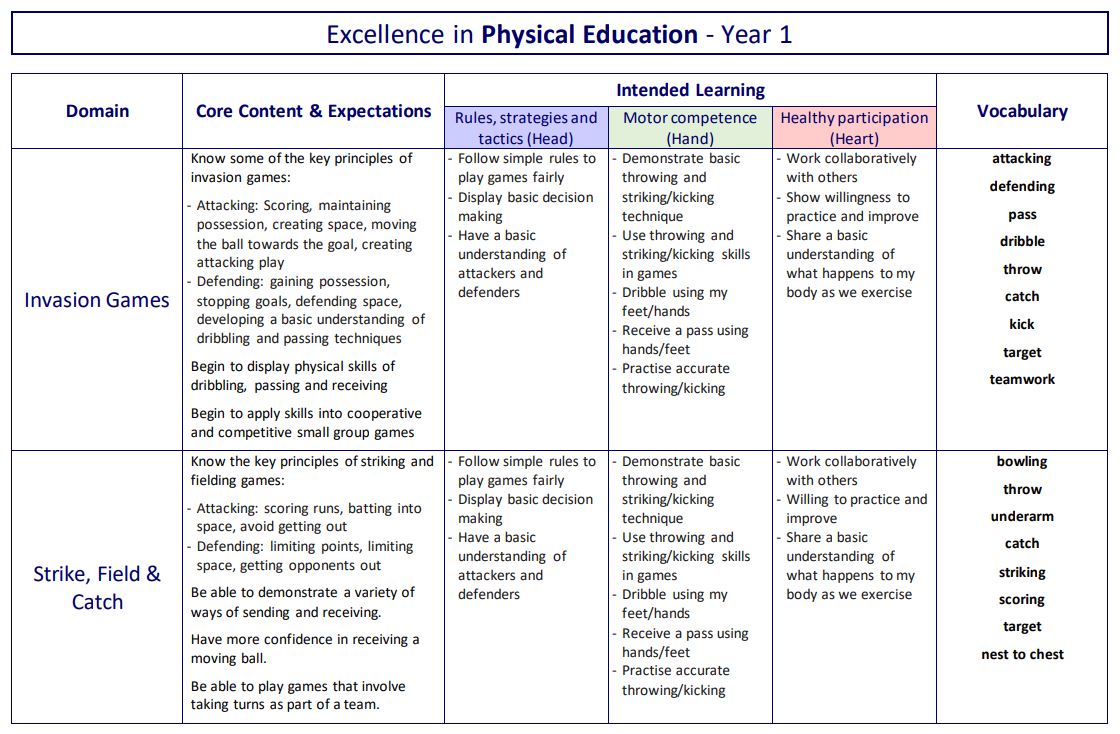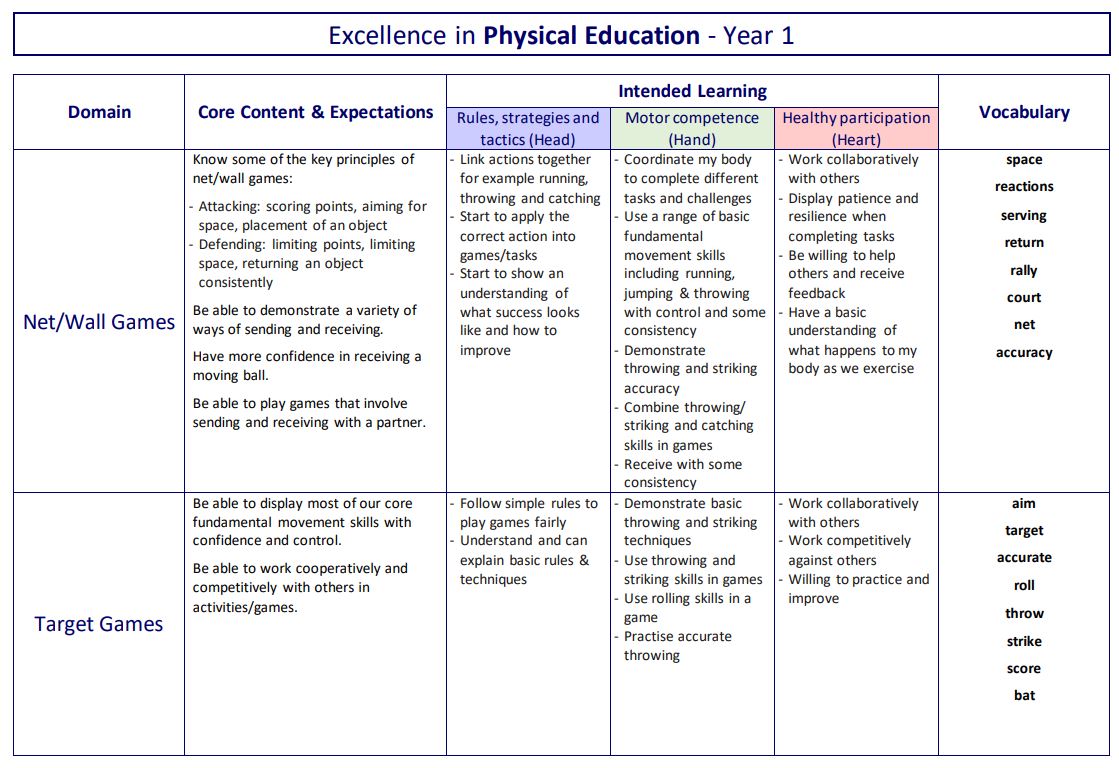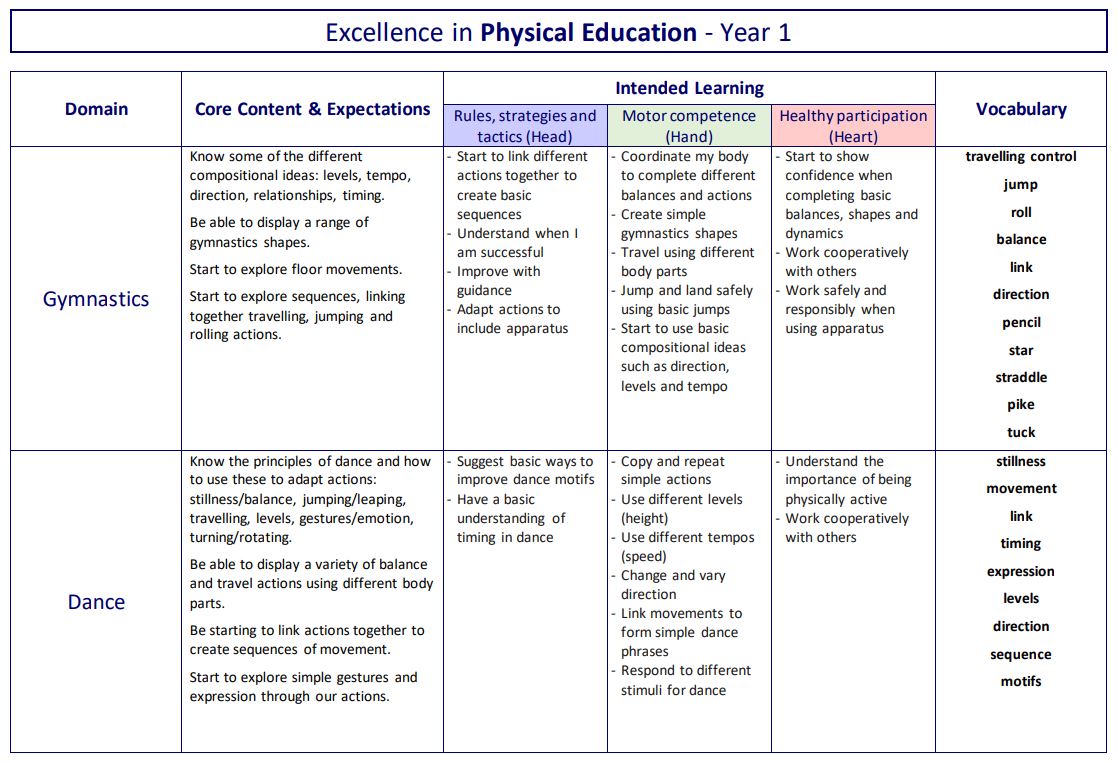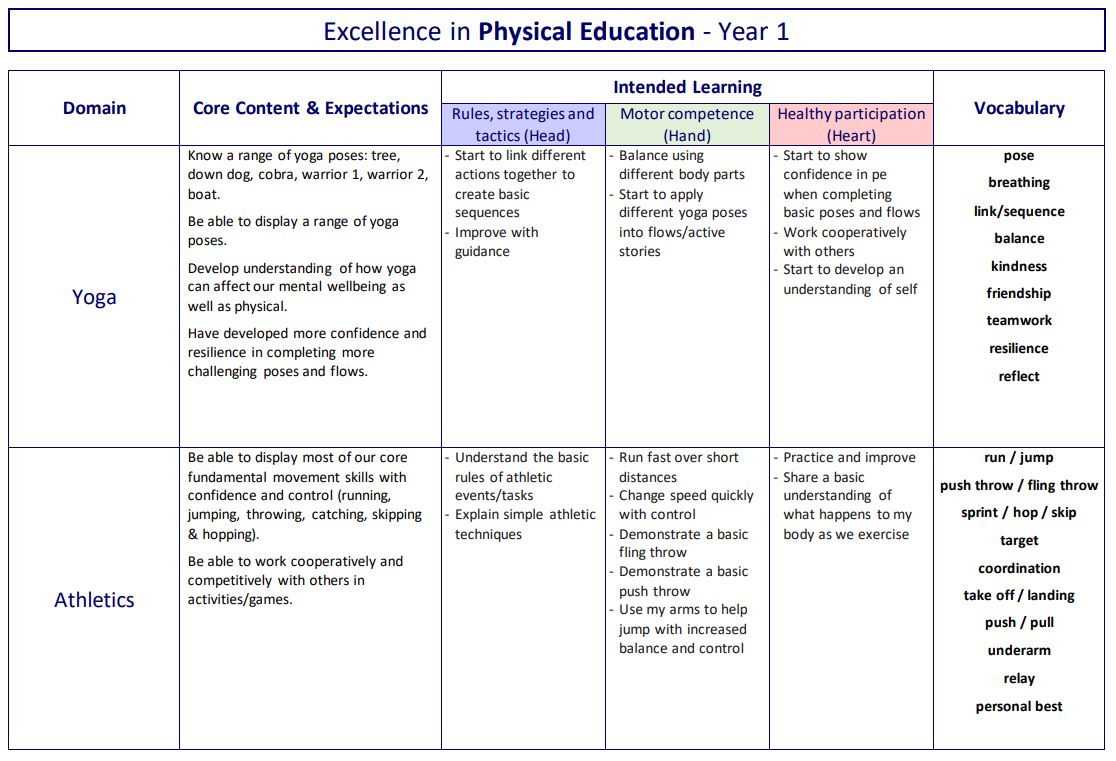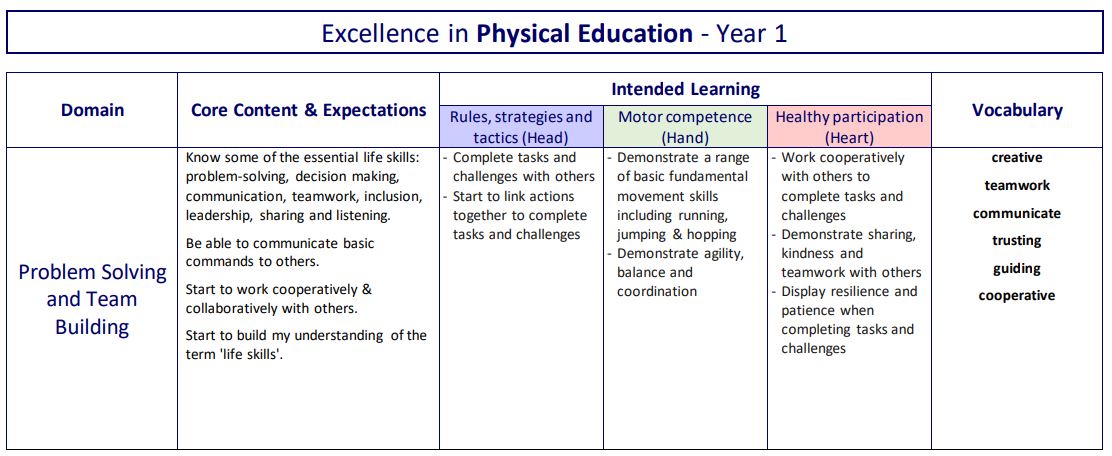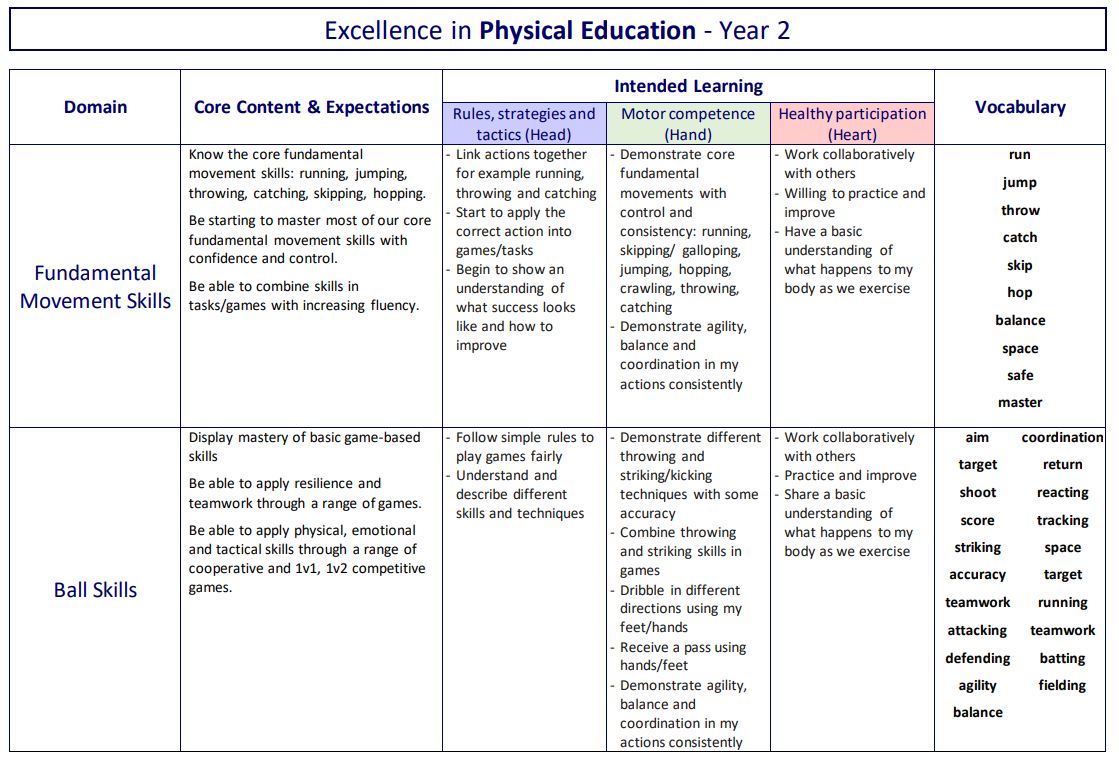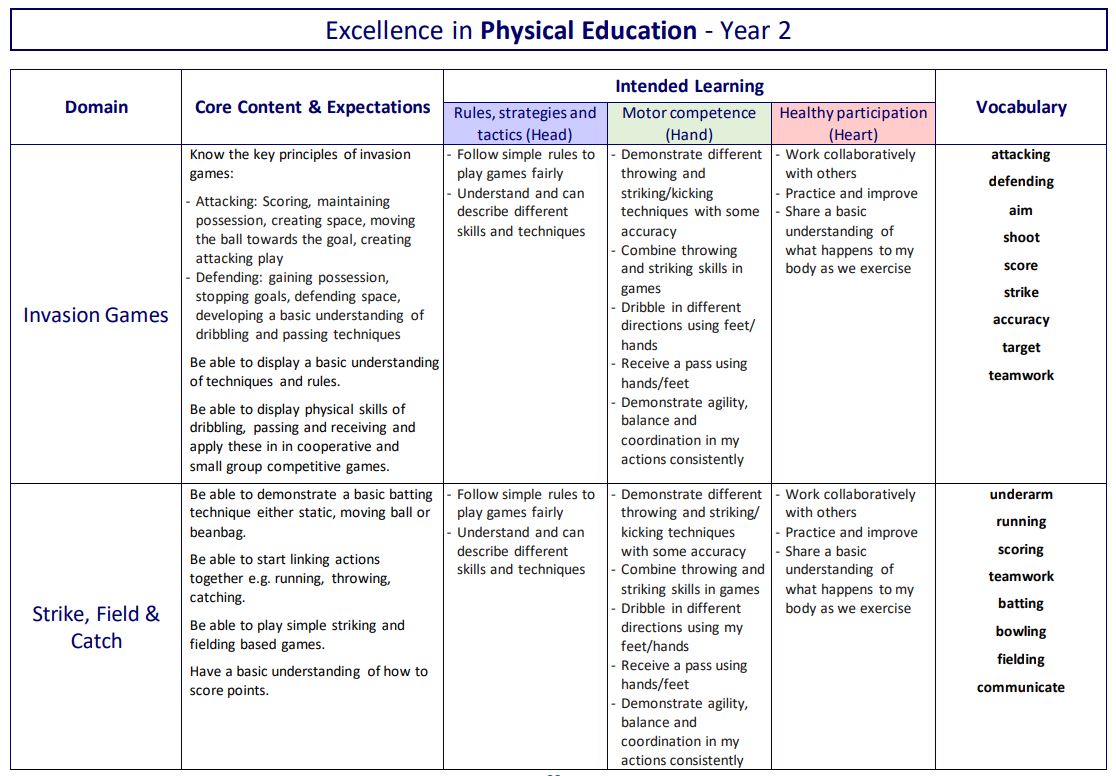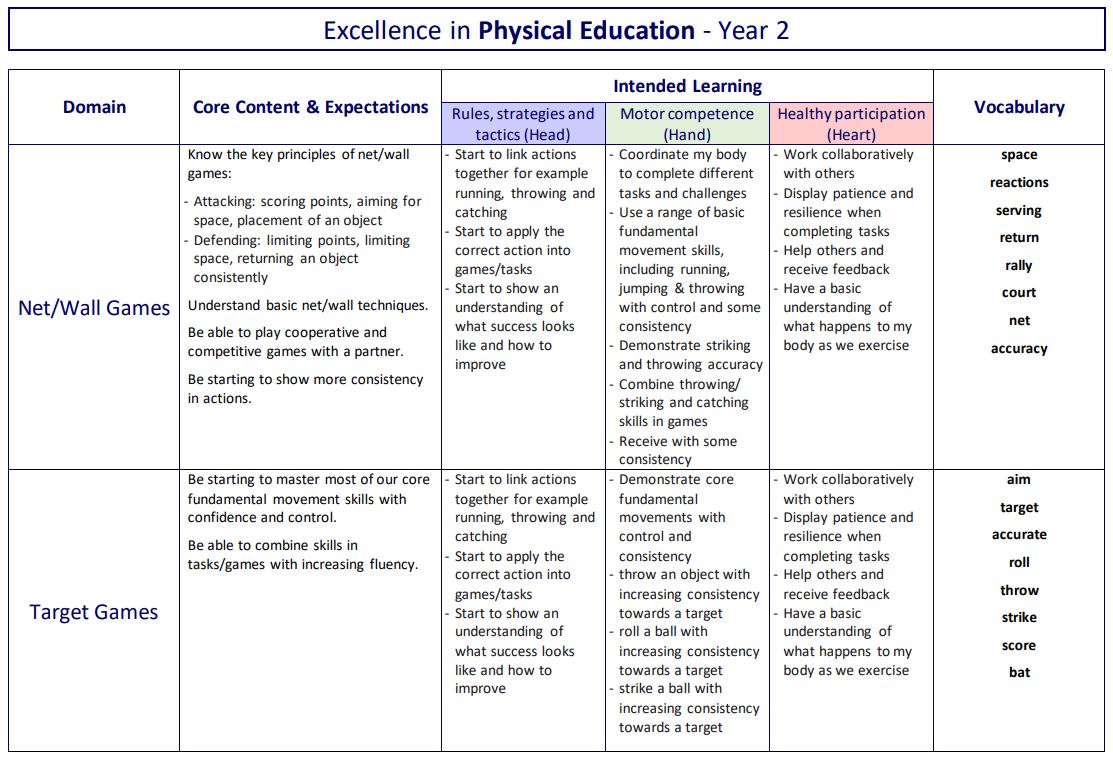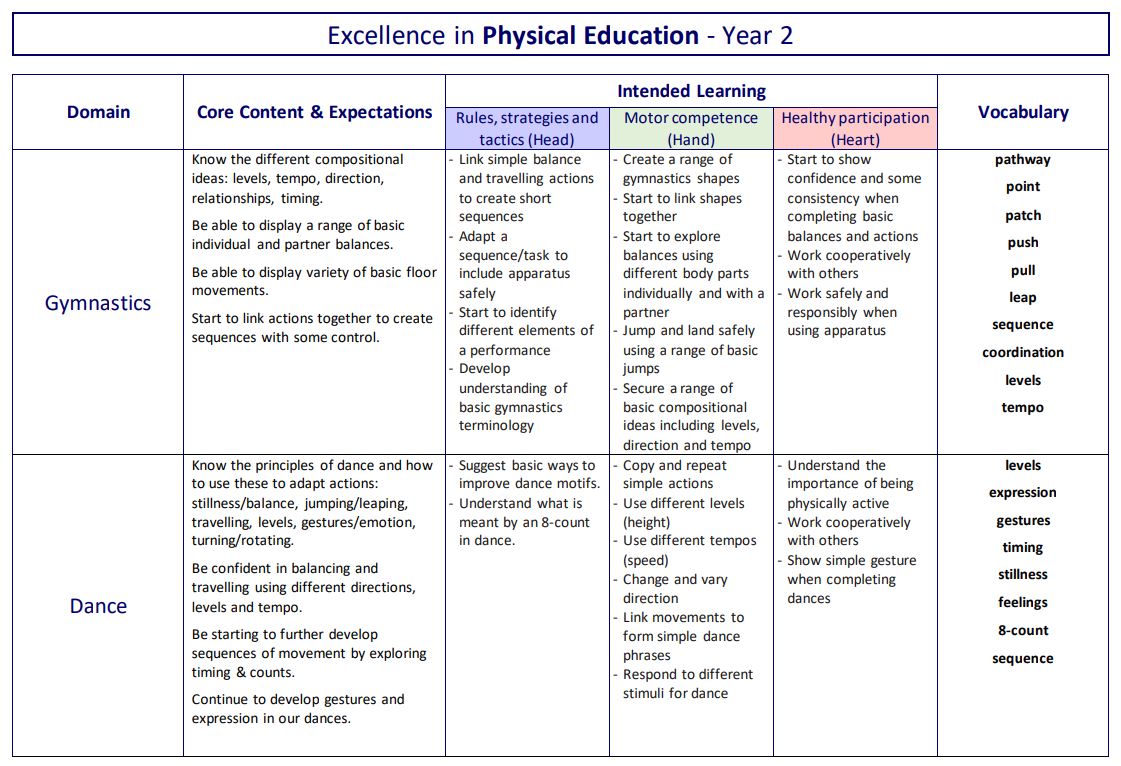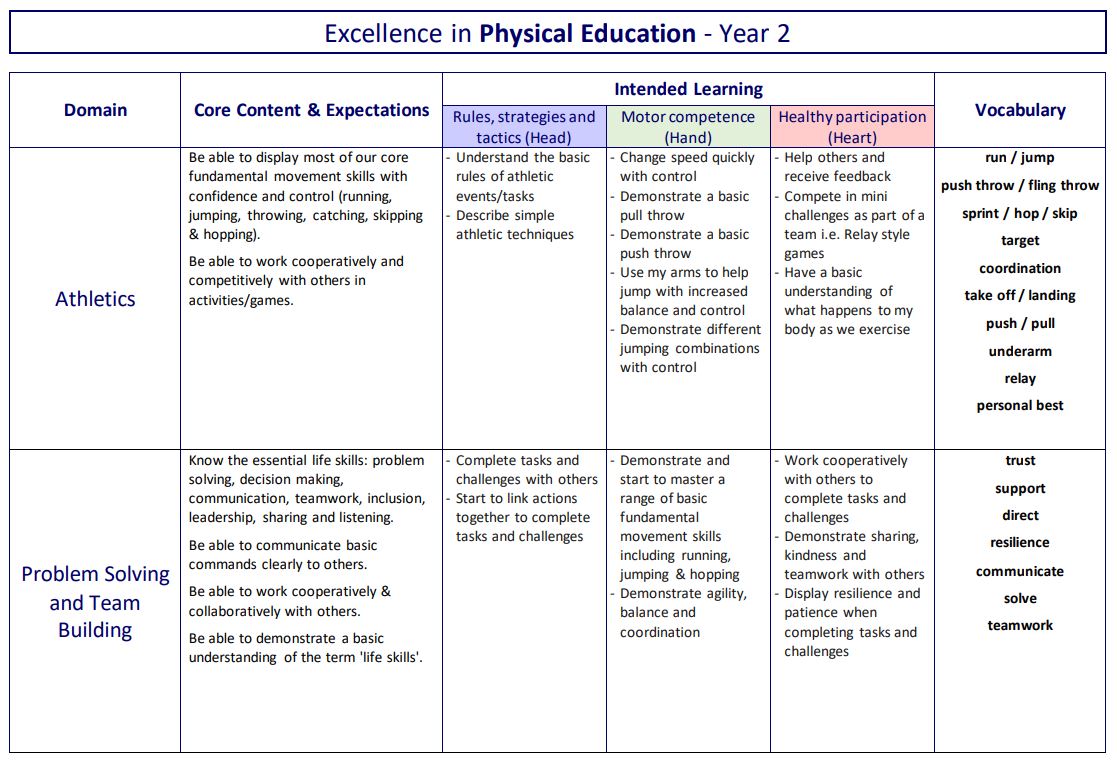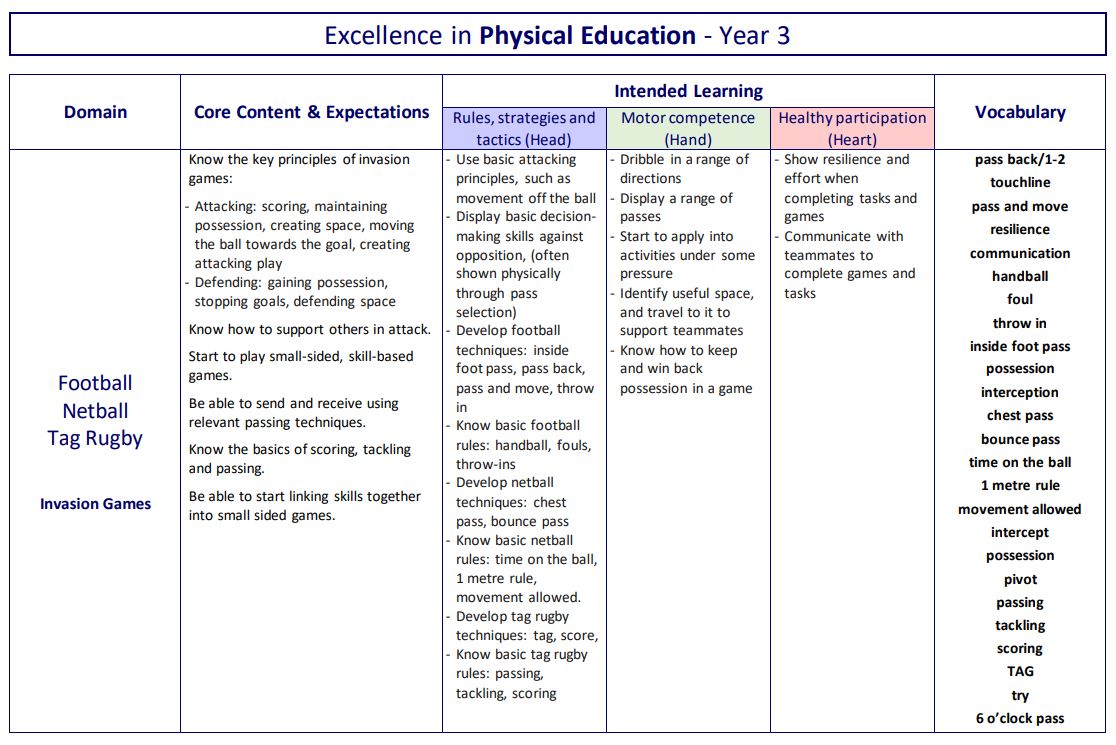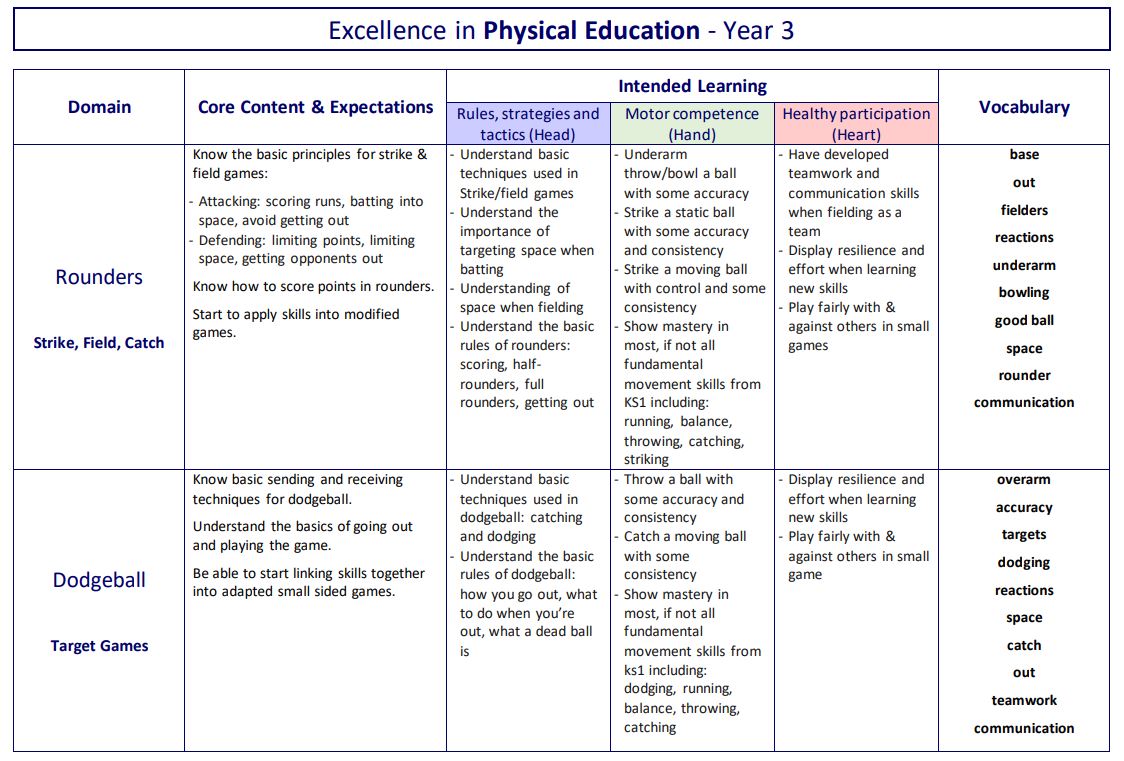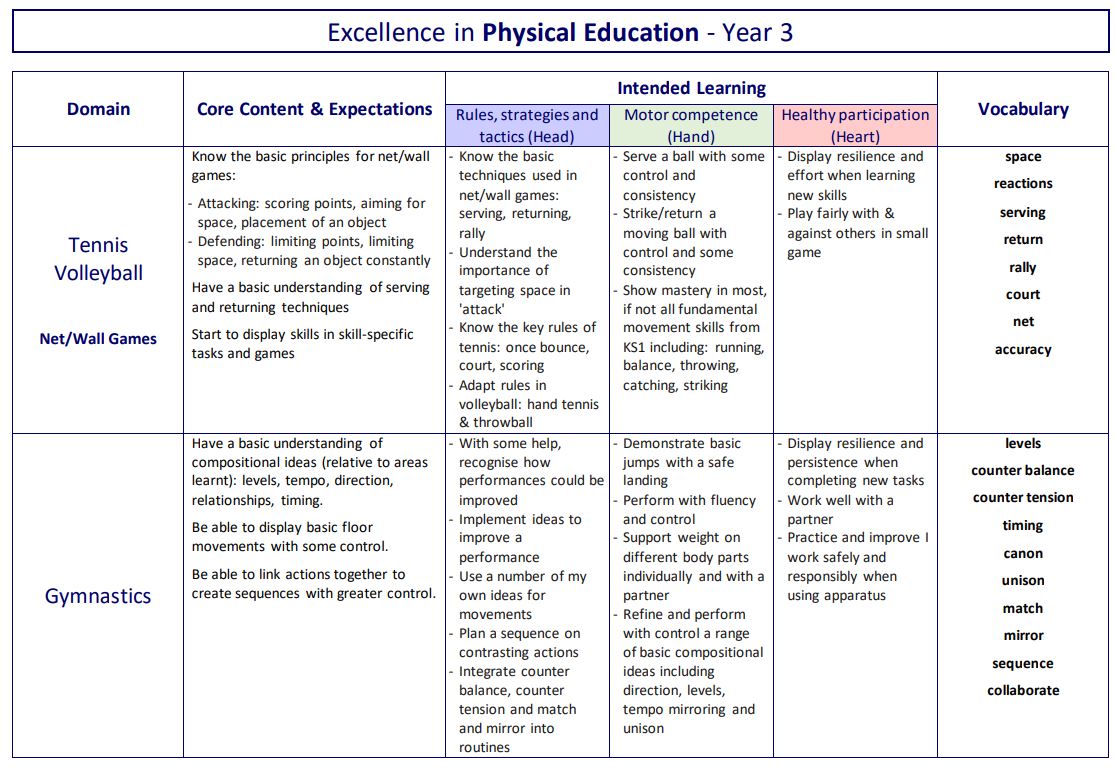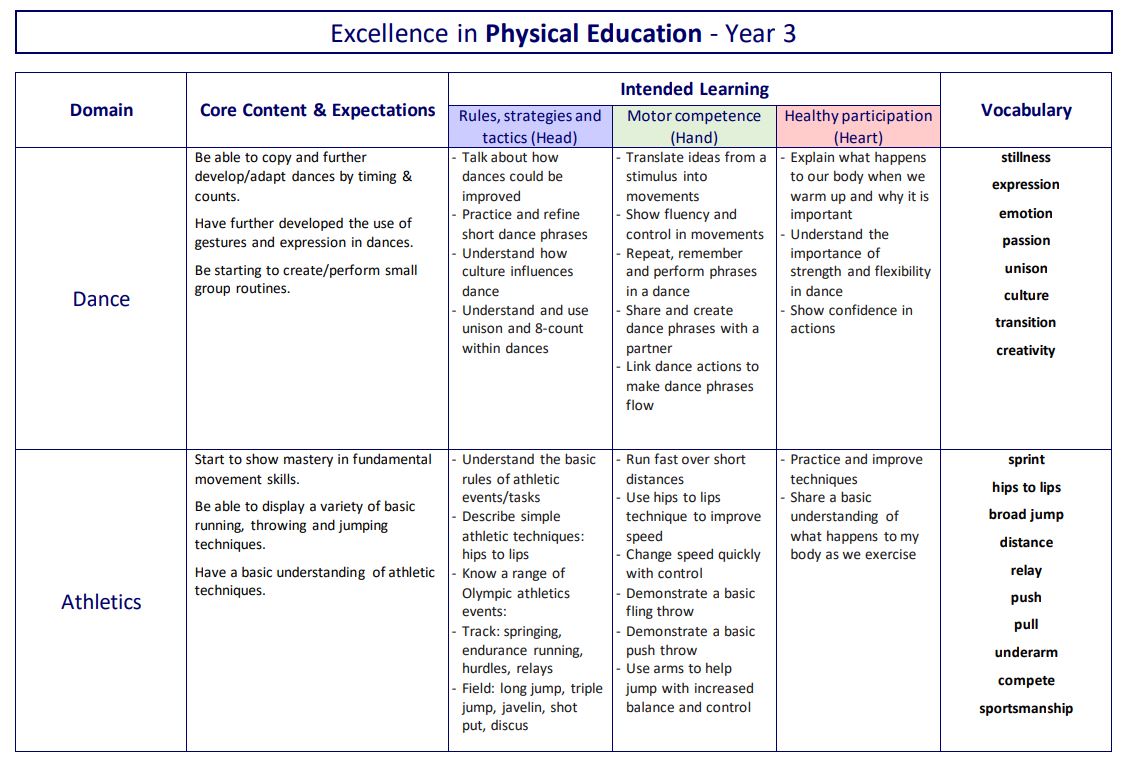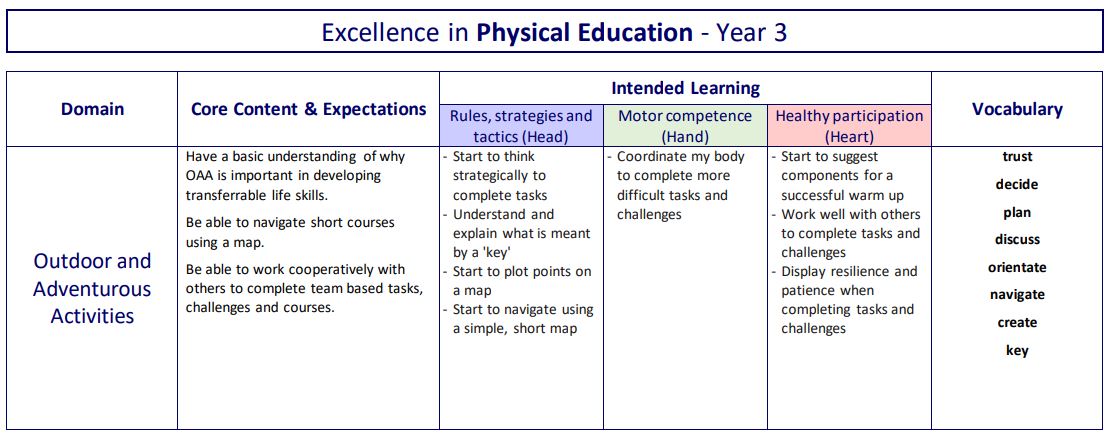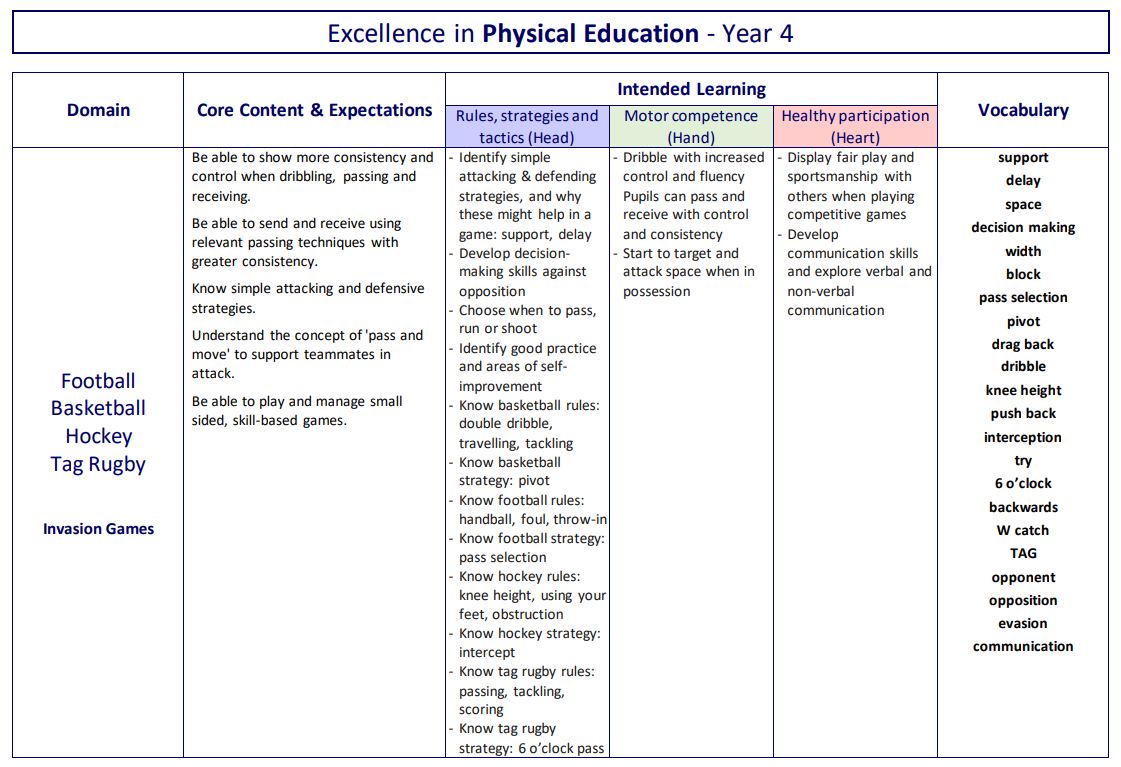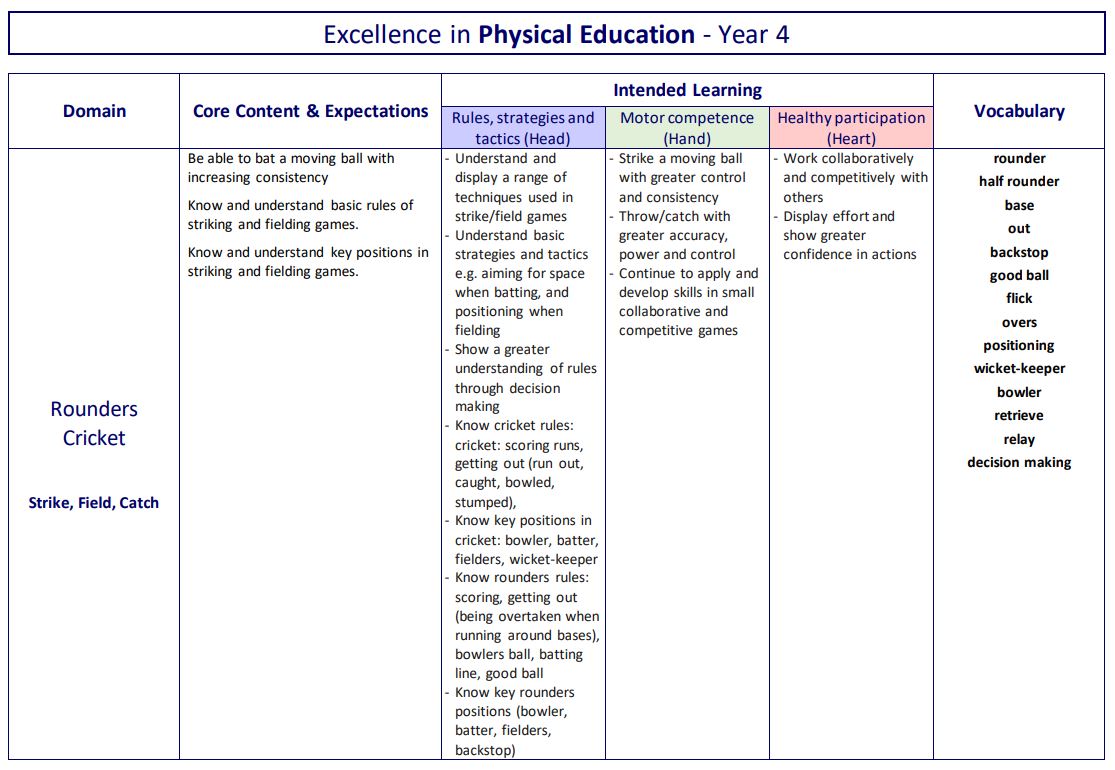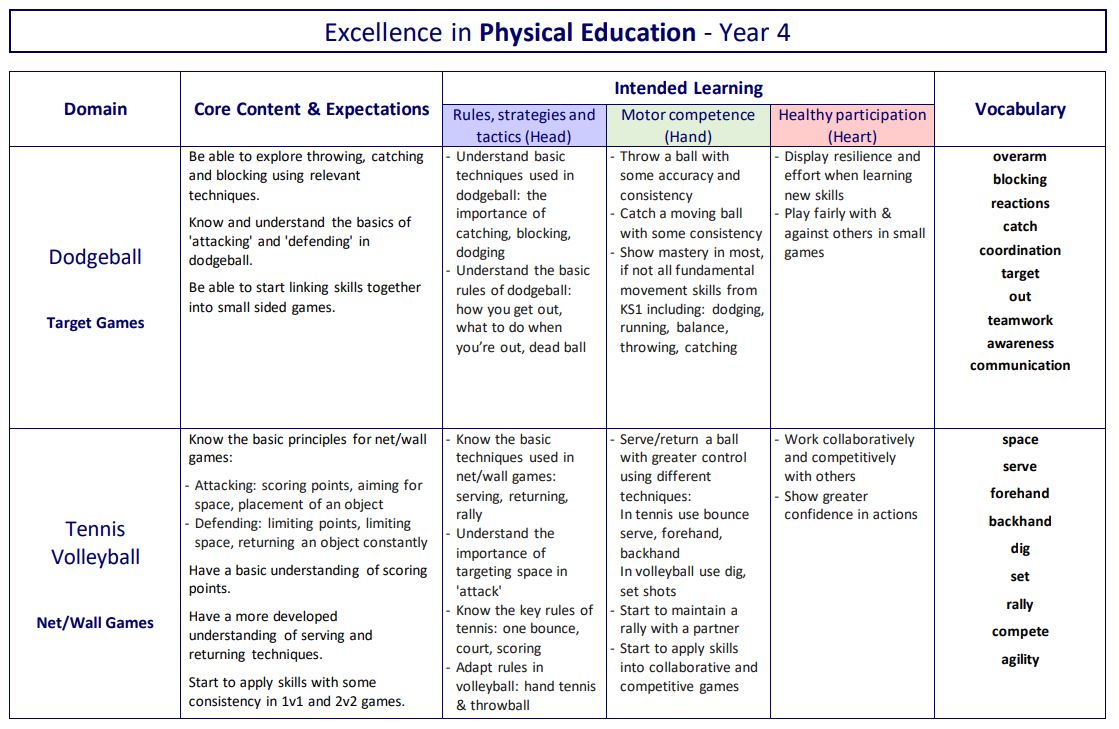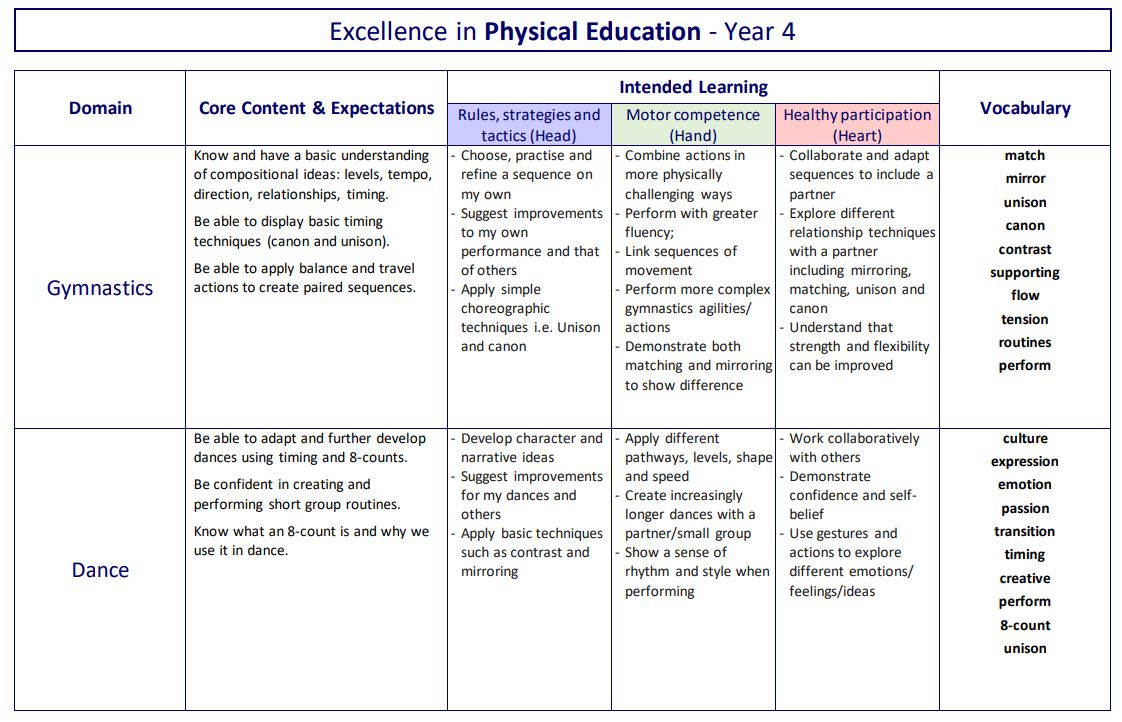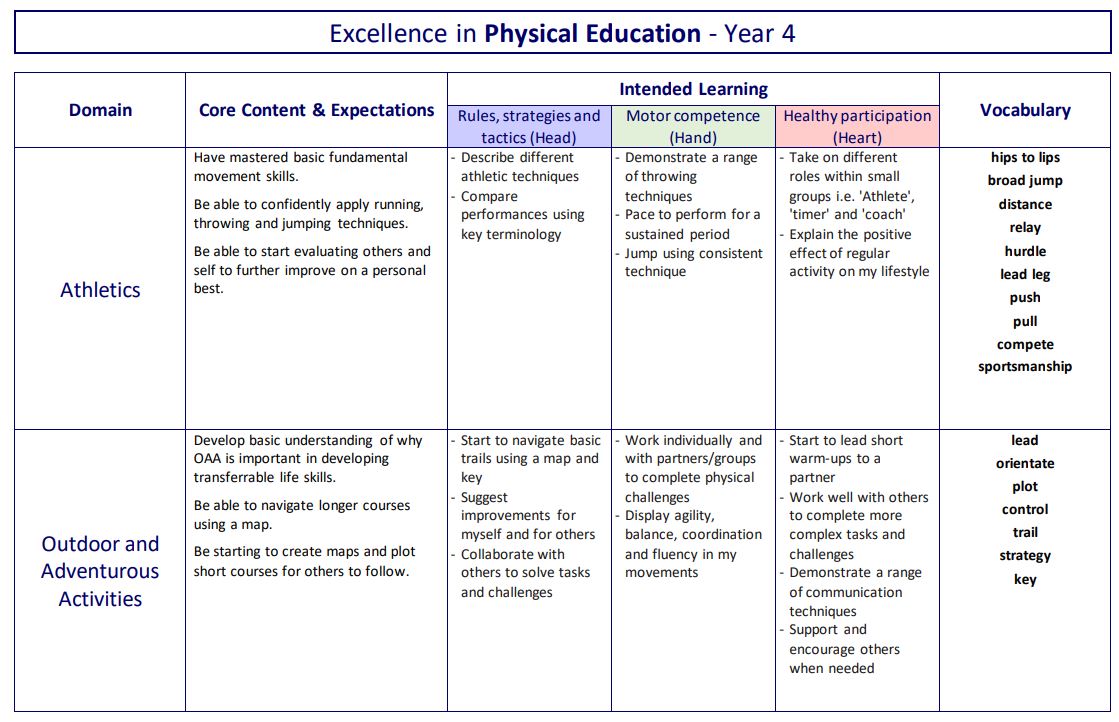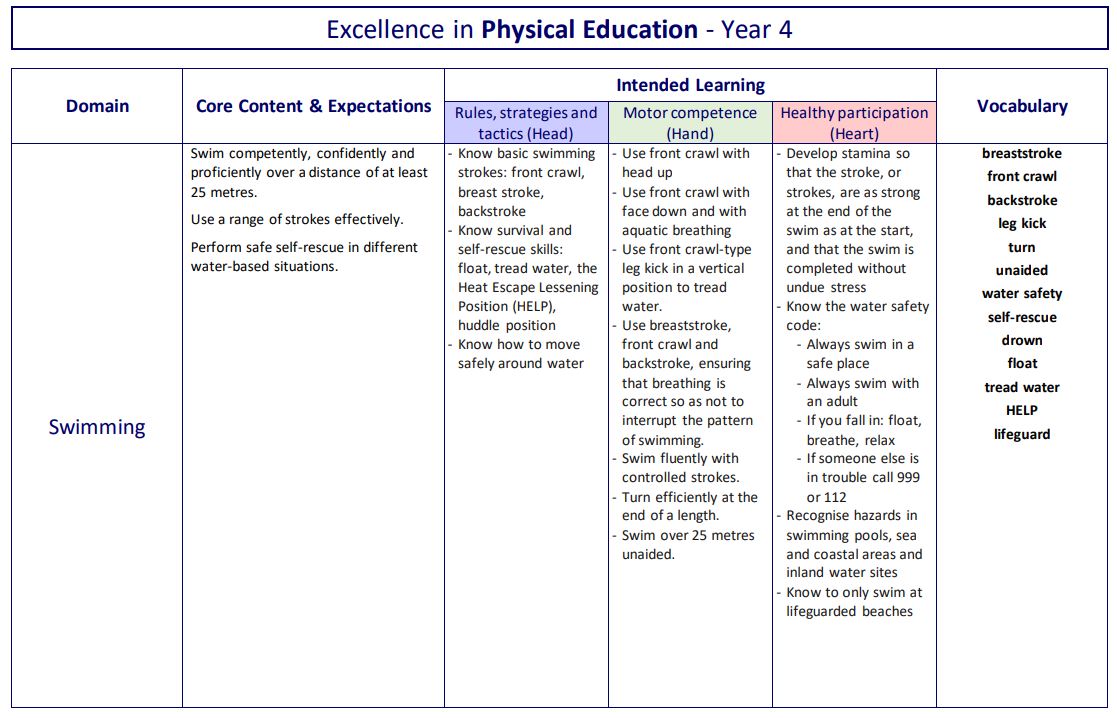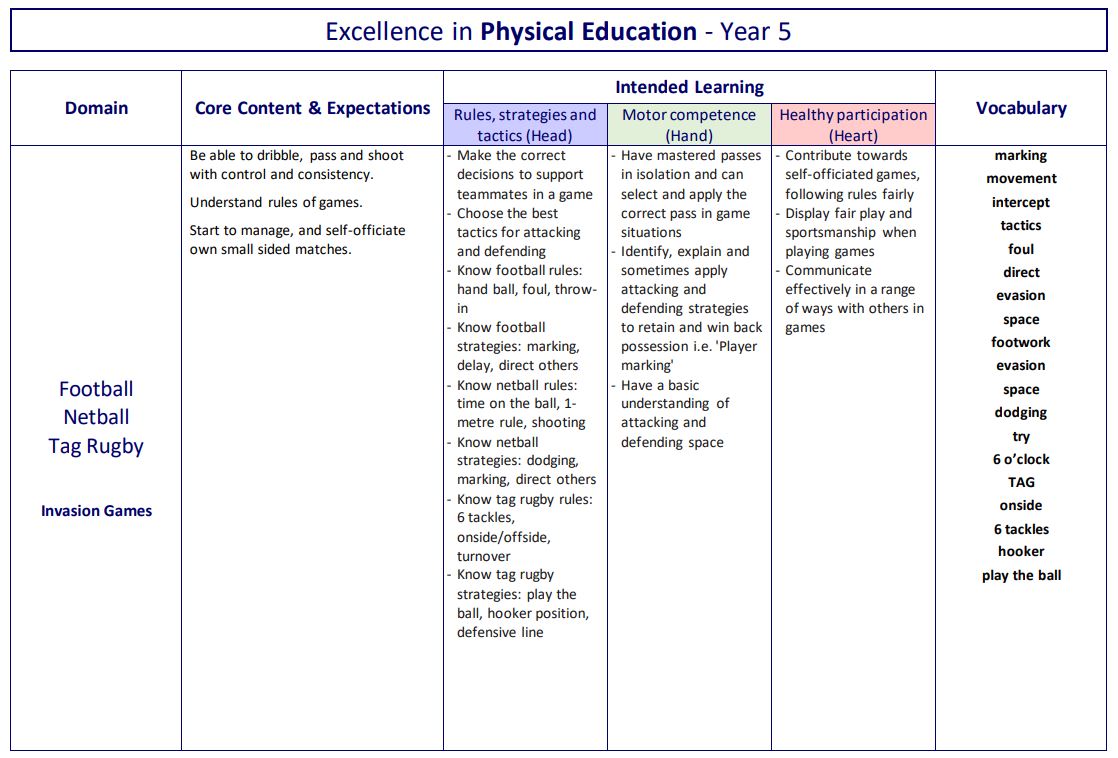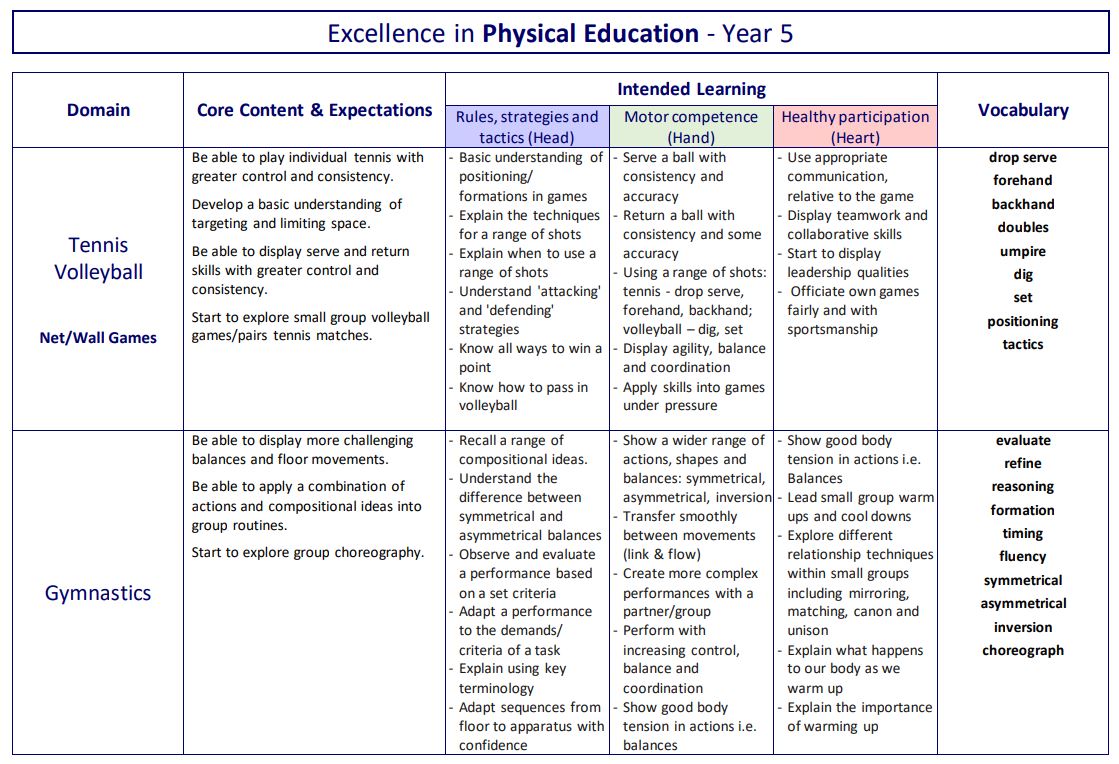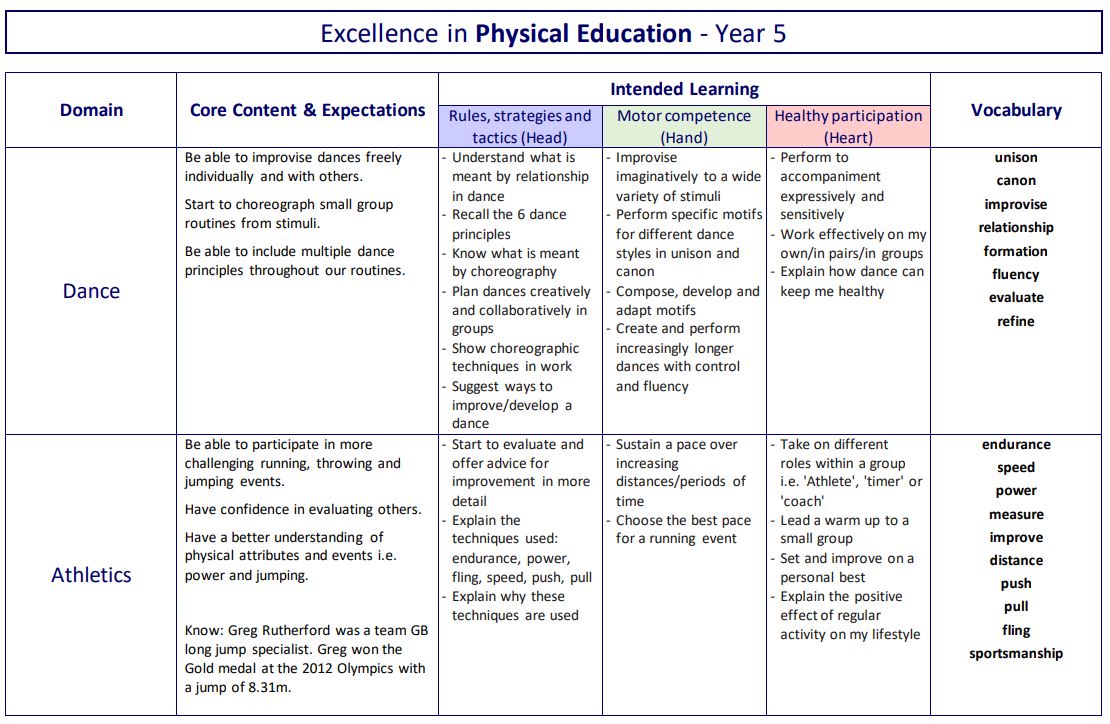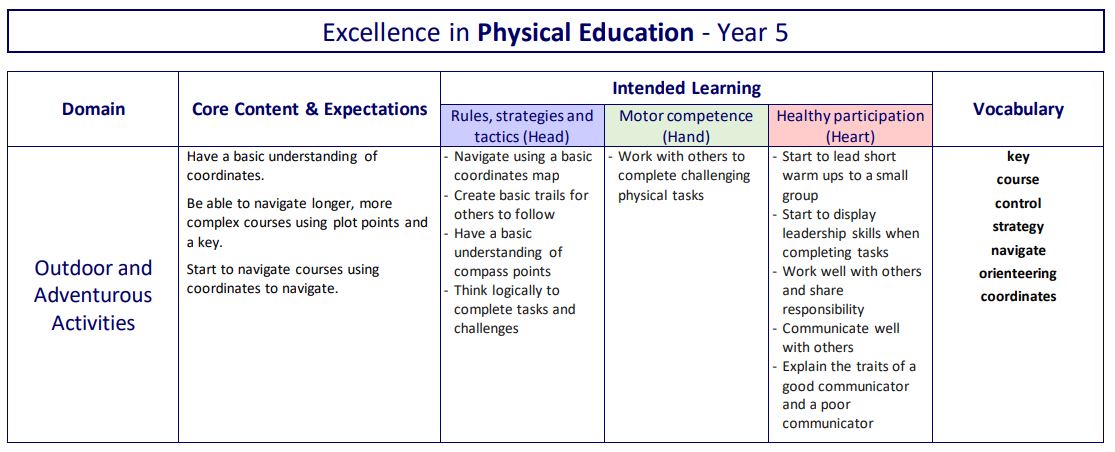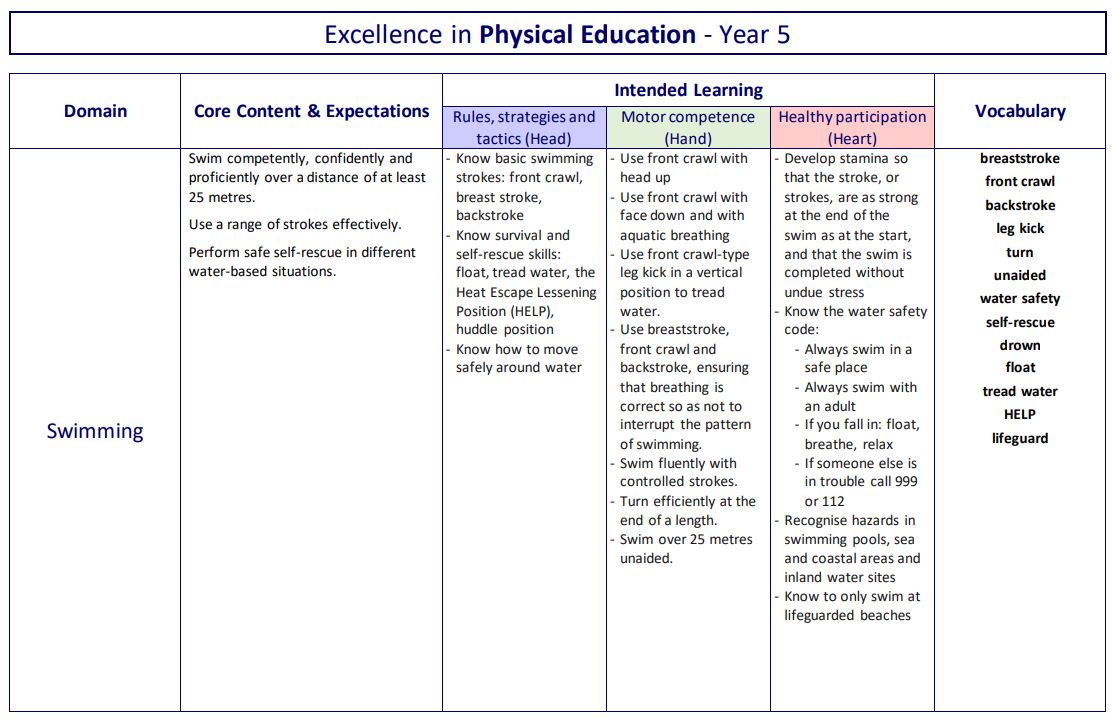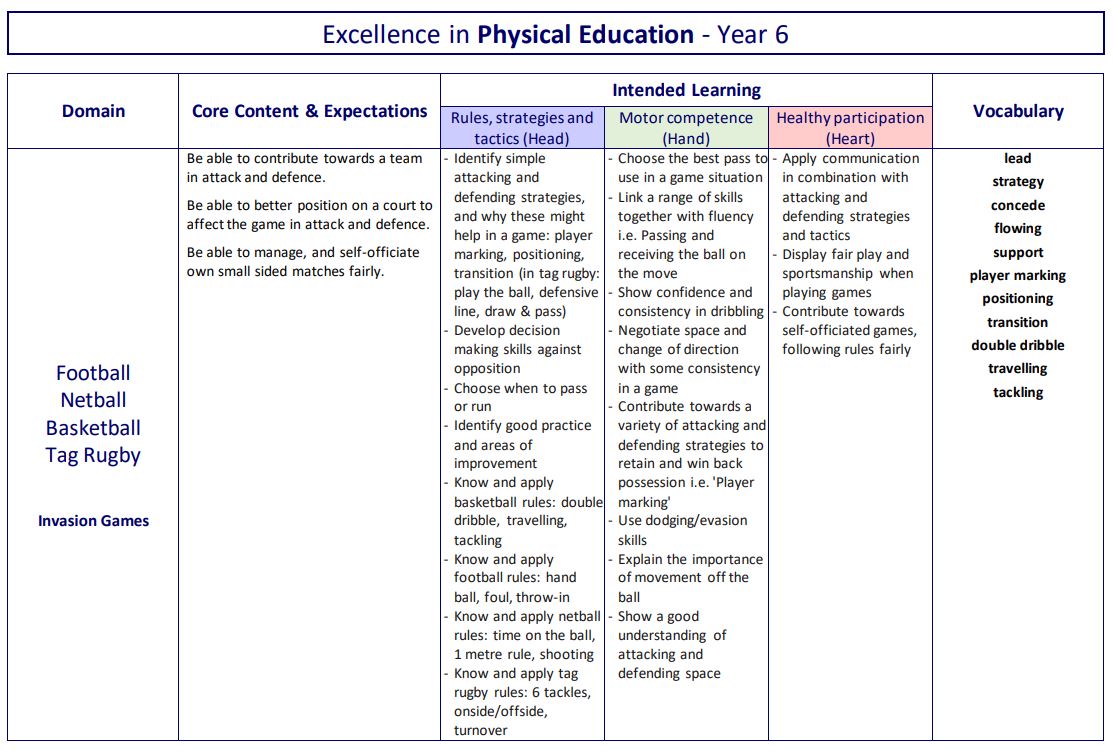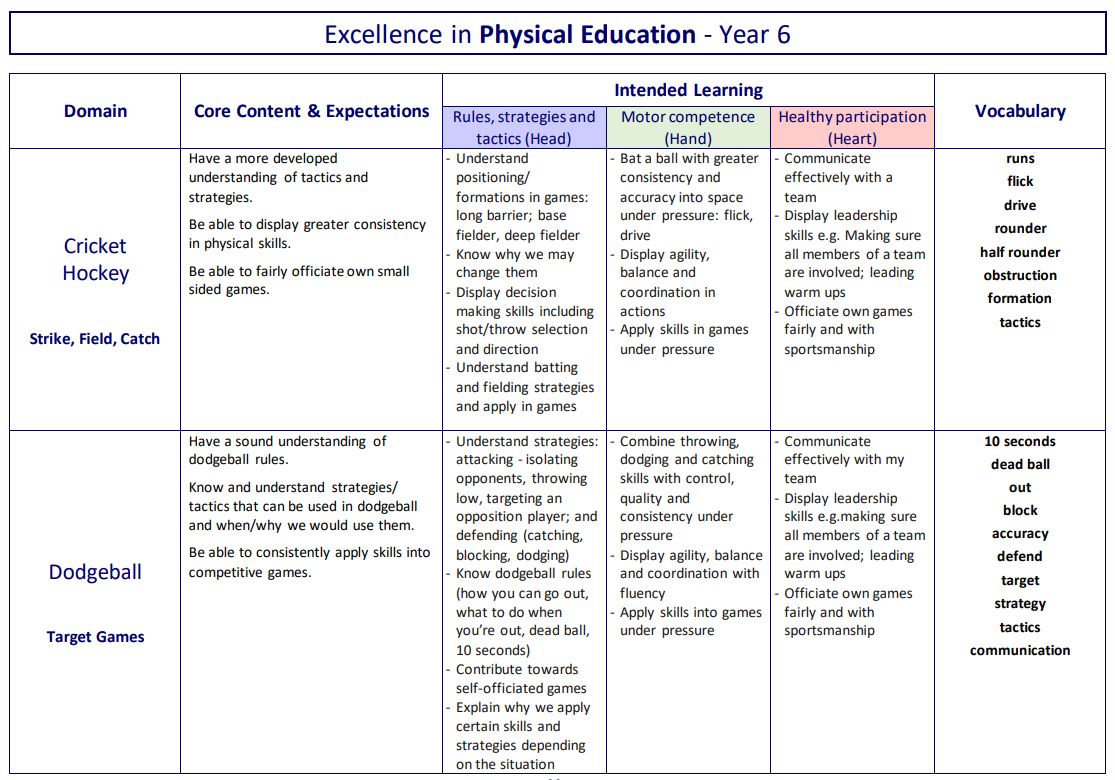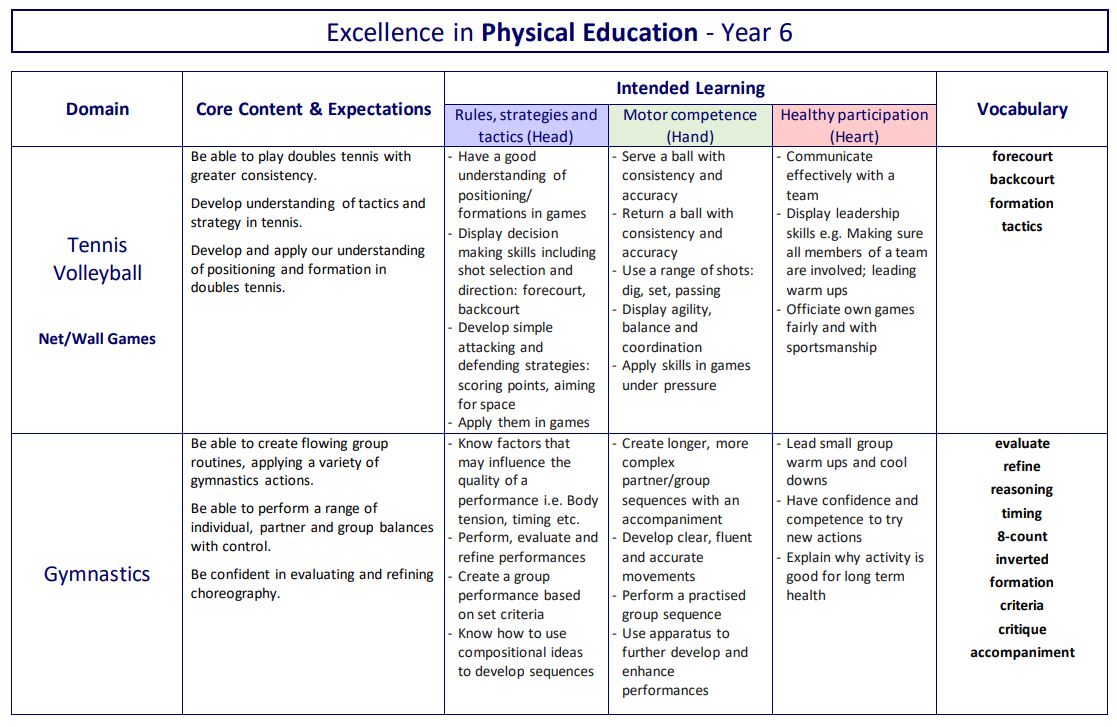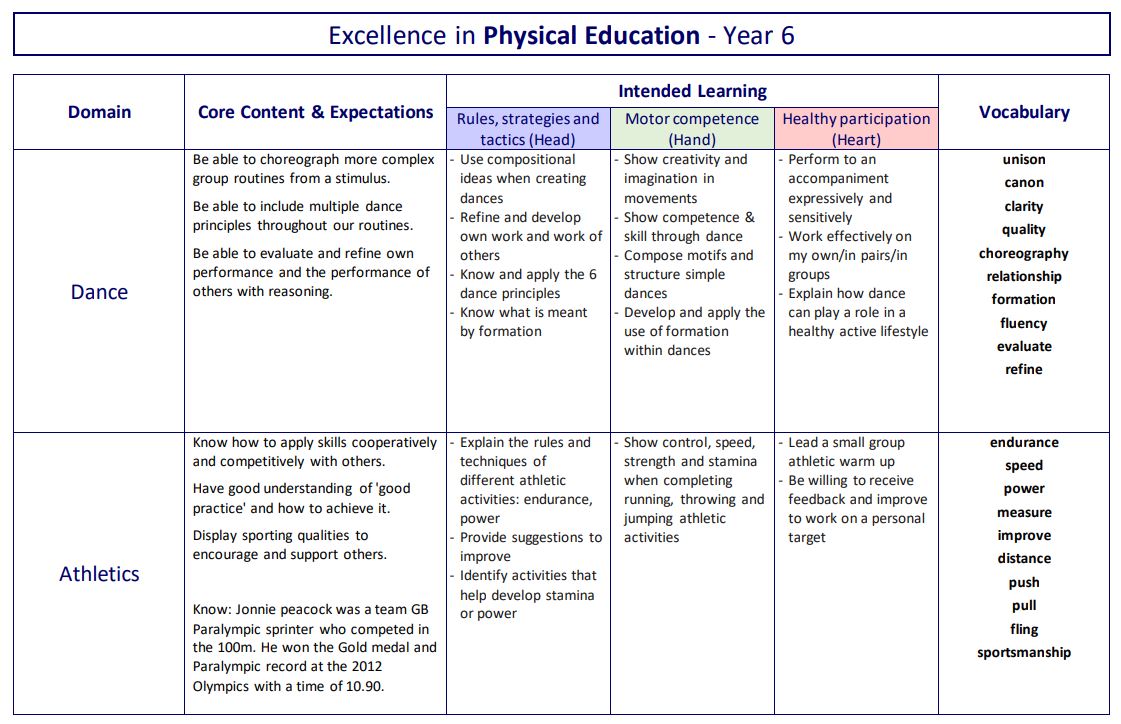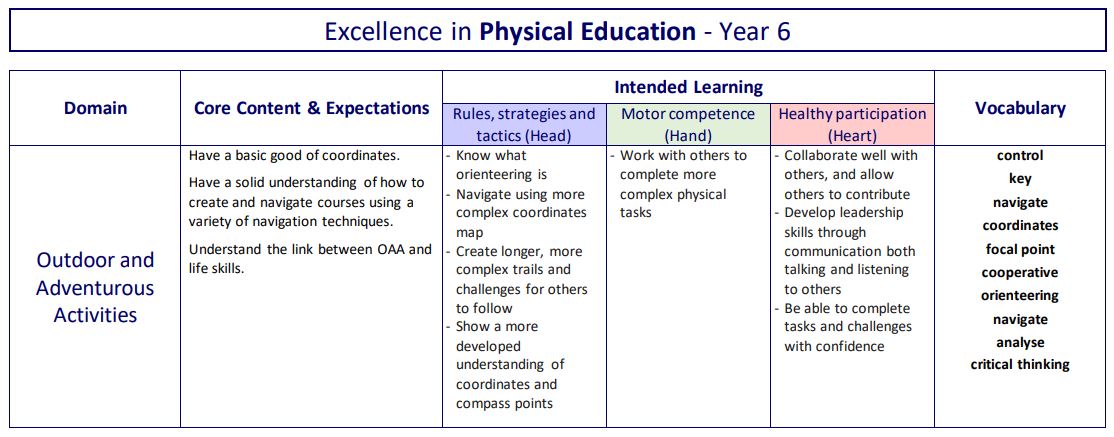PE and Sport
1. Substantive knowledge - this is the core subject knowledge and vocabulary used about the sporting disciplines and the contribution of sporting figures from a range of sports. We explore these through the lenses of substantive concepts which are taught through explicit vocabulary instruction as well as through the direct content and context of the study. The substantive concepts that we develop through our Physical Education curriculum are:
Invasion games | Net/wall games | Strike/field games | Target games | Gymnastics | Dance | Outdoor and adventurous activities | Athletics | Swimming
2. Disciplinary knowledge - PE draws on knowledge from a range of disciplines, including elite sport, physiology, psychology and sociology. For example, knowledge of how breathing rates increase during exercise has been established through scientific enquiry, whereas strategies to outwit an opponent in rugby have their disciplinary roots in elite sport. Physical Education therefore require that we teach pupils to competently and confidently apply the important contributions that each field makes to their participation in sport and physical activity.
3. Declarative knowledge – this is the factual knowledge concerning movement, rules, tactics, strategies, health and participation. It is explicitly linked to the content being taught. Pupils demonstrate their declarative knowledge through question-and-answer sections of a lesson or spoken or written observations of a practical demonstration. We provide pupils with the explicit vocabulary teaching and give them opportunities to verbalise their strengths and limitations, and to communicate ideas, decisions and choices they make during an activity they undertake or one that they observe.
4. Procedural knowledge – this can be viewed as the know-how to apply declarative facts, such as applying the tactics to a practice situation or modified game. This knowledge in a PE setting is best put into practice through physical demonstration or physical participation. For example, someone must have knowledge of what a headstand looks like and how to retain balance, before they start to practise doing one.
The latter two forms of knowledge, the ‘know-what’ and ‘know-how’, are vitally important in ensuring a pupil’s effective physically education. Pupils need to be explicitly taught what the links are between declarative and procedural knowledge. Without the declarative knowledge of motor movement, rules, strategies and tactics, and healthy participation, it might be that pupils can perform physically but they are not able to critically engage fully in the field of sport and physical activity, which could otherwise enrich their experiences. We have therefore carefully selection for systematic teaching both declarative and procedural knowledge.
• rules, strategies and tactics – knowledge of the conventions of participation in different sports and physical activities.
• healthy participation – knowledge of safe and effective participation.
At Sandringham, we realise that it is important that children make connections between their knowledge of health and how it applies to physical activity. This is provided through cross-curricular links in PSHE and Science. Developing this knowledge in these subjects allows pupils to make informed choices about their own participation outside of school.
PE is a vocabulary-rich subject. Besides the specific terminology, including for example muscle names or names of specific movements, there are some informal terms used that effectively ‘chunk’ together multiple and complex instructions or feedback. For example, when playing football, the word ‘line’ is often used to instruct someone to continue using the width of the playing area and pass the ball down the side line to a teammate. Pupils only know the meaning of terms like this and can attempt to respond as intended if they have been taught the specific language of the activity or sport. We therefore explicitly plan and teach vocabulary to enable this to happen. These include the precise names of rules, strategies and tactics, when pupils will first encounter and re-encounter key vocabulary and when and how complexity increases so that pupils have full access to particular physical activities and sports through development of a shared language for PE.
• affective/social domain (heart).
Through adopting a whole child approach, we place a focus on developing the whole child from foundation stage through the Year 6, and we allow pupils to grow, develop and excel in areas outside just the physical. The Your PE curriculum runs a progressive scheme, providing full PE coverage, with units covering key substantive concepts. This allows pupils to have a broad and enriched experience in their Physical Education curriculum, to create a positive relationship with physical activity to last long after they leave our schools. We use other external providers to support teacher development through co-delivery of PE lessons. Additional CPD is available through the Your PE portal. Swimming is implemented using an external provider to deliver extended lessons in Years 4 and 5.
We have deliberately chosen to focus on fewer sports/physical activities, taught in more depth, to enable more pupils to develop the competency required within the national curriculum. Our approach provides the depth of learning required for pupils to achieve success in a particular activity before moving on to the next. This reflects the role that competence can play in motivation and engagement.
We have sequenced our content based on how progression of knowledge builds over time, from simple to complex and through different sports and physical activities. The sequencing allows pupils to revisit and recall prior knowledge and vocabulary by requiring that they seek similarities and contrasts between the different contexts they are taught knowledge. For example, they are taught the importance of maintaining possession of the ball as an important strategy for success in an invasion game; when this content is taught in football, pupils also learn the importance of dribbling and passing and the important parts of the body to pass and receive the ball. While hockey involves different movements and rules and different strategies and tactics, pupils’ knowledge of the importance of maintaining possession that they learned in football can be developed and extended. Similarly, pupils are taught the similarities and contrasts between principles of training to improve their participation in different sports and physical activities. For example, pupils learn about the importance of muscular endurance in dance, but they develop a broader understanding of muscular endurance through swimming. They are also taught other desirable fitness components within each activity to provide a richer concept of what fitness means generally and what it looks like across a range of activities and sports. Through careful positioning of clear and specific examples, pupils develop their understanding and make the correct connections to their prior knowledge.
• CHALLENGE Teachers get the children to interrogate their learning - summarise, explain, compare and contrast. Tools are built into routines to reduce overload and allow for hard thinking. These can be adapted for children based on their individual needs.
• USE THE SKILL – this builds on the ATTEMPT phase of the lesson; it provides a context for the APPLY and CHALLENGE phases of our pedagogical approach.
Guidance for each part includes varied activities, explicit teaching points, and how to recognise if the activity has been successfully completed.
SEND Learners
Careers and meaningful opportunities
At Sandringham Primary we provide career links and meaningful opportunities throughout each subject within the curriculum. Our learners benefit from: class discussions, visits from different professionals, visits, webinars and utilising our local expertise.
• Does learning ‘travel’ with pupils and can they deliberately reuse it in more sophisticated contexts?
Teachers employ a range of strategies both at and after the point of teaching to check the impact of their teaching on the permanence of pupils’ learning. These include: retrieval practice, vocabulary use and application, deliberate practice and rephrasing of taught content, cumulative quizzing within the learning sequence, summarising and explaining the learning question from the sequence, tests and quizzes. Teachers use information from tasks, tests, pupil book studies and other monitoring to support learning by responding to the gap between where pupils are and where they need to be. In lessons, they adapt explanations and examples to address misconceptions and provide additional practice or challenge where required. After lessons, they analyse pupils’ responses to identify shared and individual gaps in learning and misconceptions. Teachers then adjust subsequent planned teaching in response.
We use summative assessment is ‘to provide an accurate shared meaning without becoming the model for every classroom activity’ (Christodolou, 2017). If our curriculum is effective, it will lead to improvements in summative assessments over time. Teacher assessment judgements are against an agreed assessment model (the curriculum). We make summative judgements annually. Teachers record their formative assessments using the Your PE app. Annually, they record a summative judgement on OTrack.
Pupil book study is used as a method to quality assure our curriculum by talking to the children and looking in pupils’ books. We do this after content has been taught to see the extent to which pupils are knowing more, remembering more and able to do more. In preparation, we review the planned content, knowledge and vocabulary, so that conversations with pupils are meaningful and focused on what has been taught. When looking at books, we look at the content and knowledge, teaching sequence and vocabulary. We also consider pupils’ participation and consider the explanations and models used, the tasks the pupils are asked to do, the ability to answer carefully selected questions and retrieve information and the impact of written feedback. We ask careful questions that probe their knowledge, understanding and skills.
The Subject Leader undertakes a range of activities to understand what the curriculum looks like across the school and how well pupils know more, remember more and can do more as a result. In addition to the above tools, they use learning walks, planning reviews and book looks. They use their findings to support teachers to improve how they implement subjects and to make recommendations about the suitability of the intent for their subject. The Subject Leader formally reports on impact of the curriculum termly to the Curriculum Leader, Principal and Governors.
Progression Overview
As pupils enter KS1, they will have opportunity to develop our fundamental movement skills. Throughout KS1, pupils will have opportunity to develop these skills and how to apply them into a context. Pupils develop knowledge, simple tactics and strategies for different games, and develop knowledge of techniques and sequencing to apply into gymnastics and dance type activities. By the end of KS1, we are aiming for children to have mastered core fundamental movement skills, and some additional skills.
In Years 3 and 4, pupils develop attacking skills through a range of sports and activities. These will be developed through small sided games (3v3, 4v4) and uneven games (3v1, 4v2). Pupils also develop relevant attacking and defending tactics and strategies which are transferable across similar games (invasion, net/wall, strike/field and target based). Pupils have the opportunity to develop communication, teamwork and leadership based skills through games and activities including outdoor and adventurous activities. In Gymnastics and Dance activities, pupils develop performance skills and display increasingly challenging sequencing. Pupils develop their knowledge of compositional ideas and start to combine the above skills to create sequences with partners. Skills are applied through relevant tasks in line with age expectations. Year 4 children will be begin to swim competently, confidently and proficiently and will develop self-rescue techniques.
In Year 5 and 6, pupils continue developing attacking skills through a wider range of sports and activities and develop defensive strategies. These are developed through small sided and modified games (4v4, 5v5, etc). Pupils have opportunities to display further development of communication, teamwork and leadership based skills through games and activities including outdoor and adventurous activities. These skills will be developed across a range of games, competing in inter- and intra-school competitions. In Gymnastics and Dance activities, pupils to further develop performance skills and display challenging sequencing. Pupils further develop their knowledge of compositional ideas and combine the above skills to create longer more complex, sequences in pairs and groups. All skills will be applied through a comprehensive range of tasks in line with age expectations. Year 5 children will be revisit swimming so that they can swim competently, confidently and proficiently to ensure they secure these vital swimming skills by the end of their primary education.
